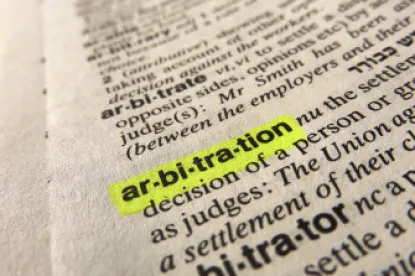In a decision substantively the same as the now-withdrawn opinion entered on January 20, 2021, the US Court of Appeals for the Ninth Circuit once again affirmed denial of a non-signatory’s motion to compel arbitration. Setty v. Shrinivas Sugandhalaya LLP, Case No.18-35573 (9th Cir. July 7, 2021) (Nelson, J.) (Bea, J., dissenting).
Following the June 8, 2021, withdrawal of its original decision, the Ninth Circuit again found that federal rather than Indian law should apply, this time focusing on the New York Convention and its implementing legislation’s emphasis on “the need for uniformity in the application of international arbitration agreements.” The Court further reasoned that it applies “federal substantive law” in cases involving the New York Convention when determining the arbitrability of federal claims by or against non-signatories. The Ninth Circuit then pointed back to GE Energy, the decision that prompted the initial remand, stating that although the Supreme Court of the United States “specifically concluded” that “the New York Convention does not conflict with enforcement of arbitration agreements by non-signatories under domestic-law equitable estoppel doctrines,” the Supreme Court did not determine whether GE Energy could enforce the arbitration clauses under principles of equitable estoppel, nor did it determine which body of law governed.
The Ninth Circuit concluded that while “a non-signatory could compel arbitration in a New York Convention case,” the facts presented here did not implicate the agreement that contained the arbitration clause. Clarifying its prior holding, the Ninth Circuit stated explicitly that the claims here had “no relationship with the partnership deed containing the arbitration agreement at issue in this appeal.” Repeating its earlier ruling, the Court reasoned that the subject matter of the dispute was not intertwined and thus the doctrine of equitable estoppel was not applicable.
Judge Carlos Bea again dissented on the choice of law issue. Although most of his opinion was similar to his prior analysis, Judge Bea indicated that he disagreed with the majority’s notion that federal substantive law is applied in cases involving the arbitrability of federal claims by or against non-signatories under the New York Convention. Judge Bea argued that there was no basis to make such a choice of law analysis for a motion to compel dependent on whether the plaintiff’s claims sounded in federal or state law, and that whether an arbitration agreement is otherwise governed by the New York Convention is irrelevant to the choice of law for an equitable estoppel claim.
Practice Note: The Setty decision appears to demonstrate a shift in the US arbitration landscape, and parties may begin to see an increase in the use of equitable estoppel theories by non-signatories. Practitioners should keep in mind that non-signatories may use this theory affirmatively to attempt to compel arbitration, but it may open the door to enforcement of an obligation to arbitrate against non-signatories as well.





 />i
/>i
